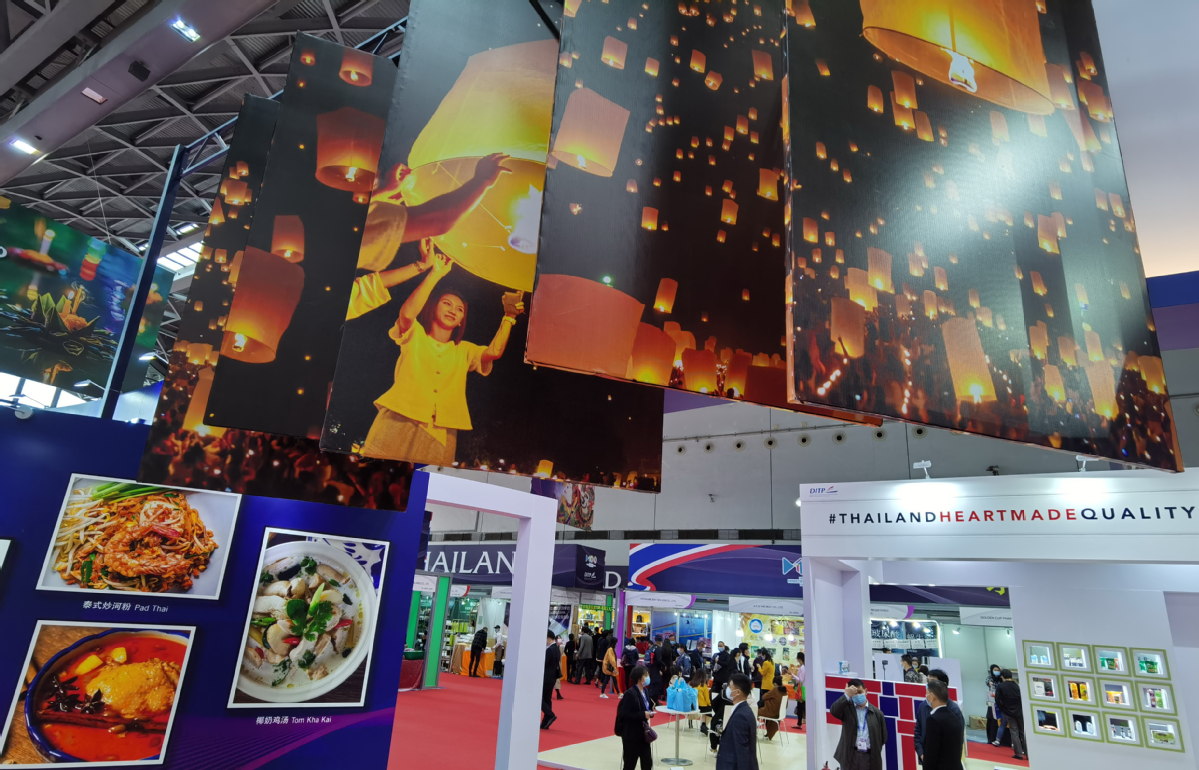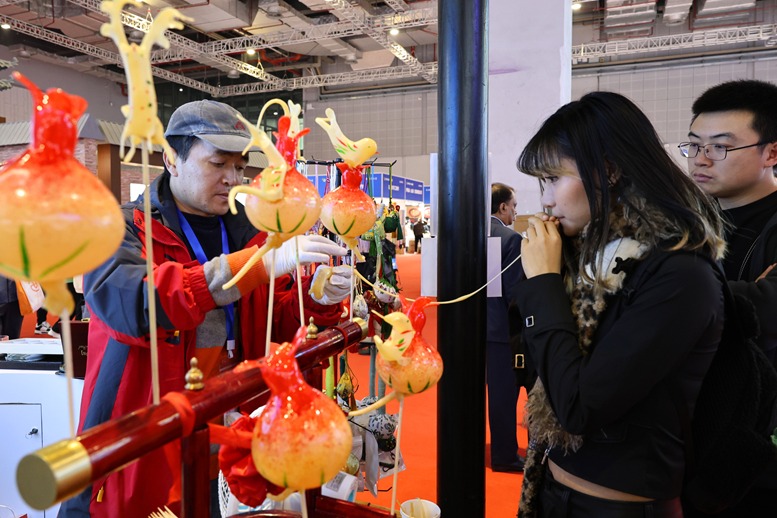RCEP inspires leading entrepreneurs from region amid growth


NANNING-Dried fruit entrepreneur Pollapat Mahitapong has set up three new production lines at her processing factory in Thailand, eyeing China's giant market.
For three consecutive years, the Thai business owner has participated in the annual China-ASEAN Expo in Nanning, the Guangxi Zhuang autonomous region.
Thanks to the platform, her dried fruit products are sold in China as well as Vietnam and Singapore.
At the expo, which wrapped up last month, entrepreneurs like Mahitapong were inspired by the signing of the Regional Comprehensive Economic Partnership agreement in mid-November, and they expect their businesses to benefit from the same and expand across the participating countries.
A total of 15 Asia-Pacific countries including ASEAN's 10 member states and China signed the RCEP, the world's biggest trade pact on Nov 15.
After the pact takes effect, more than 90 percent of import tariffs between participating countries will be phased out, which will reduce production costs and commodity prices, bringing benefits to both enterprises and consumers.
"I'm confident I'll receive more orders from ASEAN and even from Japan and the Republic of Korea through the RCEP," she said.
She added that her nephew, who holds an MBA degree, is ready to help out with their business.
"I've heard businesspeople will be able to obtain visas more conveniently among RCEP countries, so we plan to send him to Japan to do market research after the pandemic," she added.
For Kalinawong Ka Yee, senior sales manager at a Jakarta-based biscuit company, the RCEP has brightened her dream of prosperity.
"We believe our products will be easier to sell due to a larger free trade area," Yee said.
At the expo, the biscuit company received more than 20 large orders from Chinese buyers.
"Thanks to the drastic tariff cuts, I can still expand my business despite the COVID-19 pandemic," she said.
Since the implementation of the China-ASEAN Free Trade Agreement in 2010, trade in goods and services between China and ASEAN has grown rapidly through the deep integration of industrial and value chains. Tariffs on 7,000 products have been scrapped under the CAFTA framework.
"Compared with CAFTA, the RCEP constitutes a bigger market so it means bigger trading opportunities. All of this will contribute to more trade, more development and more improvement in people's livelihoods," Philippine Ambassador to China Jose Santiago Sta. Romana said at the expo.
The RCEP agreement covers a market of 2.2 billion people, almost 30 percent of the world's population, with a combined GDP of $26.2 trillion, or about 30 percent of global GDP.
Yee also plans to expand her business across more RCEP countries in the future.
"We have already begun to expand our wafer processing factory in Indonesia and hopefully we will find Japanese and South Korean business partners to explore their markets," she added.




































